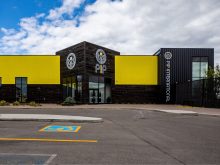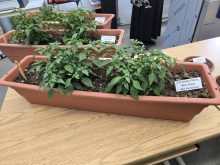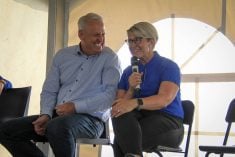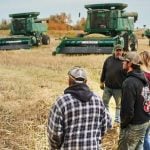It was love at first sight for Laura Friesen and the Wunderbar Arabians.
In 1969, her husband’s family had moved its horses to a 32-acre spread on the outskirts of Saskatoon from a dairy and grain farm at Hague, Sask. Laura lived in a nearby city suburb and loved animals, so she started helping out with grooming.
“I was instantly attracted to the horses, but not to their son,” she said.
That changed and by 1976, Laura and Ed married and then raised three children. Two are completing university degrees while the youngest is in high school.
Read Also
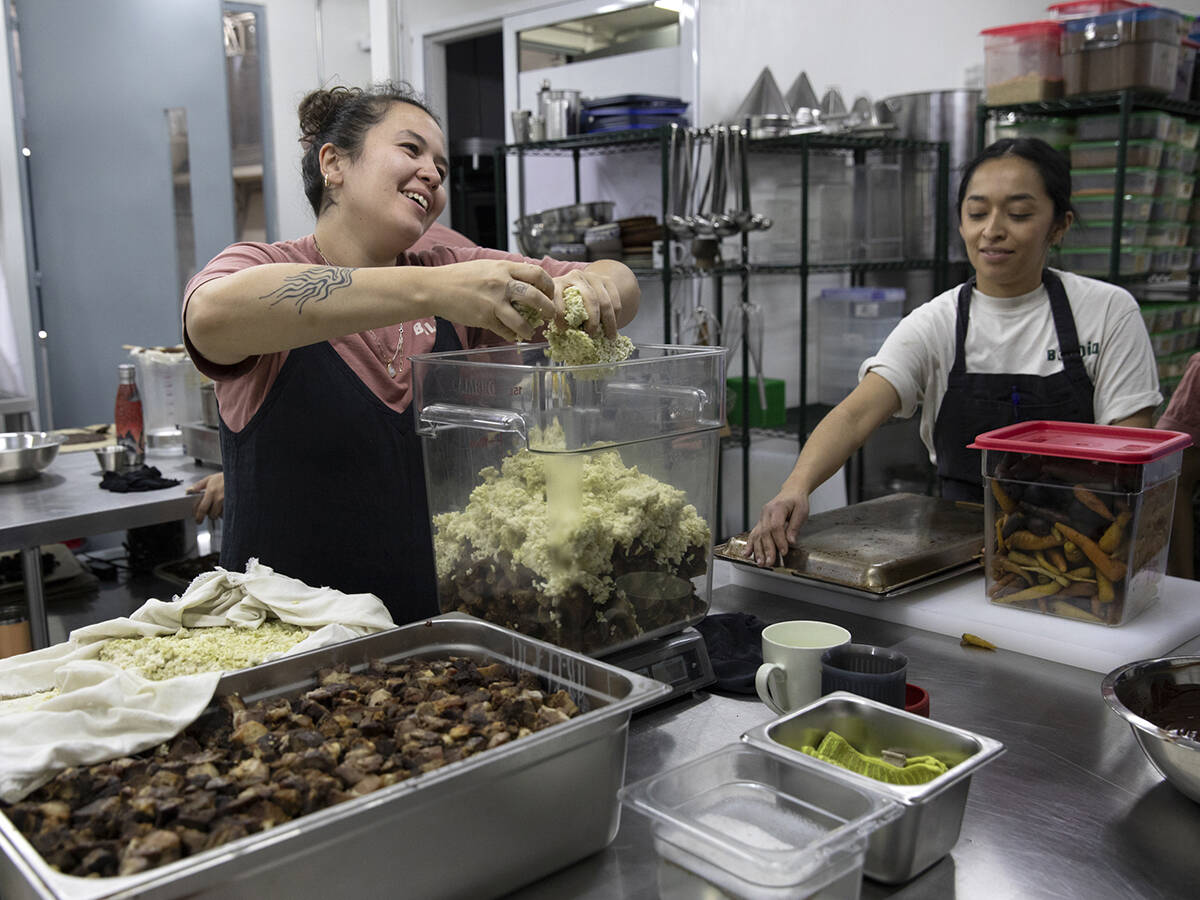
Restaurant blends zero waste, ancient farming
A Mexico City restaurant has become a draw for its zero-waste kitchen, which means that every scrap of food and leftovers is reused for other purposes.
Today the family breeds and trains prize-winning Arabians, distinguished by their long, lean necks and proud heads. Office walls in the barn are decorated with their champions’ ribbons, awards and photographs.
The Friesens’ proudest moment came this winter at the All-Arabian horse show in Scottsdale, Arizona, when their seven horses placed in the top 10. One Arabian won the prestigious junior yearling filly class.
“You can buy these horses, but our biggest pride is that we bred these horses,” Ed said.
A top 10 placement at that show virtually guarantees a sale price starting around $50,000, a figure the Friesens exceeded on one sale before the show.
Buyers of their horses have also received good prices on resale, with one horse selling for $500,000, they say.
The Friesens sell about 10 horses a year, with Laura also involved in raising German Shepherds for the RCMP.
The family’s love of animals is evident in the multitude of cats and dogs in and around the barn and riding arena. Near the outdoor corrals, an alpaca and llama named Bert and Ernie help the dogs keep the horses safe.
Their stock has grown to 40 from a base of 25, including Arabian horses they breed, train or foal out for others.
The Friesens hold onto at least one filly from every mare to maintain bloodlines from their star stallion and leading sire of yearling sweepstakes winners named Couturier, and their retired breeding mares.
“I get too attached to my horses,” she said.
Her youngest daughter Maegan shares that passion, riding and showing horses. She plans to advance her training and knowledge by doing an apprenticeship on a U.S. horse farm after high school.
Ed and Laura share chores with three staff, including a horse trainer from Brazil and a performance specialist from Halifax.
Laura, a retired flight attendant and ticket agent with Air Canada, works on the farm full time, while Ed splits his time between the farm and two off-farm businesses.
A former 4-H light horse club member, he runs Wunderbar Tack Shop and Critters Pet Supply in Saskatoon.
The Friesens live in one of two modest homes on the grounds. Their eldest daughter’s family and the farm staff occupy the second home.
It’s a busy life, but the Friesens say hiring good workers makes it manageable.
“You don’t have to be crazy to raise horses, but it helps,” said Ed, who cited the two trips the family needs to take to Arizona to get all the horses to the show.
“We’re used to a hectic schedule.”
They say many of their breeding decisions are made while doing chores together on the farm, which is bordered by a highway, a major city road and a railway track.
Ed said that location has been good for business, with easy access to the farm and the airport to ship and receive horse semen.
“A lot of people get in touch with us because they drive by,” Ed said.
He has remained loyal to Arabians, which he calls the Cadillac of horses. The farm is named after one of their first Arabian stallions, My Wunderbar.
“They step a little higher and have a presence,” he said, citing their beauty, intelligence and style.
His family acquired its first fillies while on a holiday to the mountains.
“We drove to Calgary and saw an Arabian horse show and never made it to Banff,” he said.
They see horse competitions as a natural offshoot of a breeding program, helping them to see where they rank with others.
“People will use that as a yardstick; if you’re close to the top, you’re on the right track.”
The shows also allow them to meet and learn from other breeders and market their animals.





